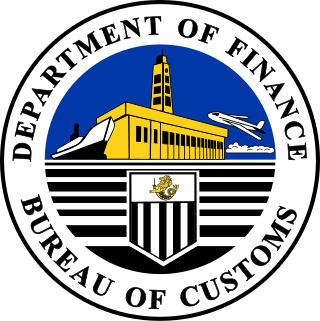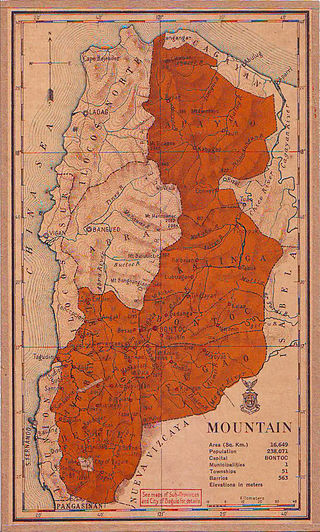
A city is one of the units of local government in the Philippines. All Philippine cities are chartered cities, whose existence as corporate and administrative entities is governed by their own specific municipal charters in addition to the Local Government Code of 1991, which specifies their administrative structure and powers. As of July 8, 2023, there are 149 cities.

The president of the Philippines is the head of state, head of government and chief executive of the Philippines. The president leads the executive branch of the Philippine government and is the commander-in-chief of the Armed Forces of the Philippines.

Davao del Norte, officially the Province of Davao del Norte, is a province in the Philippines located in the Davao Region in Mindanao. Its capital and largest city is Tagum. The province also includes Samal Island to the south in Davao Gulf.

The ombudsman of the Philippines is an ombudsman responsible for investigating and prosecuting Philippine government officials accused of crimes, especially graft and corruption.

Buluan, officially the Municipality of Buluan, is a 4th class municipality and capital of the province of Maguindanao del Sur, Philippines. According to the 2020 census, it has a population of 57,406 people.

Palayan, officially the City of Palayan, is a 5th class component city and capital of the province of Nueva Ecija, Philippines. According to the 2020 census, it has a population of 45,383 people, making it the least populated city in the Philippines.

The Department of Foreign Affairs is the executive department of the Philippine government tasked to contribute to the enhancement of national security, protection of the territorial integrity and national sovereignty, to participate in the national endeavor of sustaining development and enhancing the Philippines' competitive edge, to protect the rights and promote the welfare of Filipinos overseas and to mobilize them as partners in national development, to project a positive image of the Philippines, and to increase international understanding of Philippine culture for mutually-beneficial relations with other countries.

The National Economic and Development Authority is an independent cabinet-level agency of the Philippine government responsible for economic development and planning. It is headed by the president of the Philippines as chairman of the NEDA board, with the Secretary of Socioeconomic Planning as vice-chairman. A number of Cabinet members, the Governor of the Bangko Sentral ng Pilipinas, the Chairperson of the Metropolitan Manila Development Authority, the Chief Minister of Bangsamoro, the Secretary of Information and Communications Technology, the Chairman of the Subic–Clark Area Development Corporation, and the National President of the Union of Local Authorities of the Philippines are members of the NEDA Board.
The legislative district of Zamboanga was the representation of the historical province of Zamboanga in the various national legislatures of the Philippines until 1953. The undivided province's representation encompassed the present-day provinces of Basilan, Zamboanga del Norte, Zamboanga del Sur and Zamboanga Sibugay, and the highly urbanized city of Zamboanga.
The legislative districts of Cotabato are the representations of the province of Cotabato in the various national legislatures of the Philippines. The province is currently represented in the lower house of the Congress of the Philippines through its first, second, and third congressional districts.
The legislative district of Lanao was the representation of the historical province of Lanao in the various national legislatures of the Philippines until 1969. Marawi and Iligan also remained part of the province's representation even after becoming chartered cities in 1940 and 1950, respectively.
The legislative districts of Misamis Occidental are the representations of the province of Misamis Occidental in the various national legislatures of the Philippines. The province is currently represented in the lower house of the Congress of the Philippines through its first and second congressional districts.
The legislative districts of Misamis Oriental are the representations of the province of Misamis Oriental in the various national legislatures of the Philippines. The province is currently represented in the lower house of the Congress of the Philippines through its first and second congressional districts.

The University of the East College of Law or UE Law is the law school of the University of the East, a private, non-sectarian university in Manila, Philippines.
Codification of laws is a common practice in the Philippines. Many general areas of substantive law, such as criminal law, civil law and labor law are governed by legal codes.
This article describes the Philippine investment climate.

The Philippine Overseas Employment Administration was an agency of the government of the Philippines responsible for opening the benefits of the overseas employment program of the Philippines. It is the main government agency assigned to monitor and supervise overseas recruitment and manning agencies in the Philippines. The POEA's office is located at EDSA corner Ortigas Avenue, Mandaluyong, Philippines.

The Bureau of Customs is a Filipino government agency that is responsible for the collecting of customs duties, excise duties, and other indirect taxes in the Philippines. It is part of the Philippines Department of Finance.

The sub-provinces of the Philippines were a political and administrative division of the Philippines. The sub-provinces were a part of a larger "regular" province and residents of a sub-province participated in provincial elections of the parent province.












